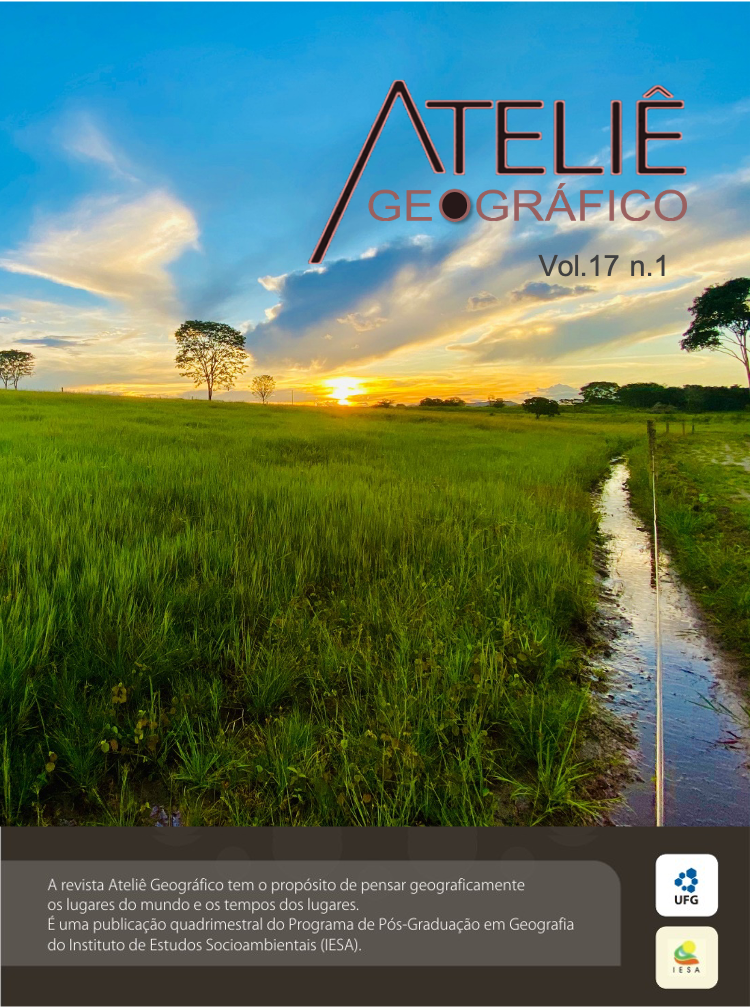A segregação socioespacial no pensamento geográfico: tendências e perspectivas, rupturas e desafios
DOI :
https://doi.org/10.5216/ag.v17i1.74750Résumé
A segregação socioespacial se caracteriza como um fenómeno expressivo em muitas cidades no planeta e um tema de grande interesse científico. Desde a visibilidade das análises no primeiro quarto do século XX até os dias atuais, diferentes foram os entendimentos e as abordagens sobre o assunto. A Geografia enquanto campo do conhecimento moderno se insere como um dos grandes contribuidores em termos de subsídios teóricos e metodológicos para a compreensão da temática. Para isso, se percorre metodologicamente um amplo levantamento bibliográfico e uma análise específica de recuperação sistemática da trajetória da segregação socioespacial urbana no domínio da história do pensamento geográfico e suas relações diretas com outros campos disciplinares e a questão espacial. Assim, se estabelece quatro períodos distintos, a partir de diferentes perspectivas e transformações, não registrando somente a importância de cada um deles para o campo disciplinar e para o debate científico ao longo da história, mas estabelecendo também, os inúmeros desafios, divergências, possibilidades e controvérsias que orbita o tema na Geografia e nas ciências humanas e sociais.
Palavras-chave: Geografia. Segregação socioespacial. História do pensamento geográfico. Geografia urbana.
Téléchargements
Téléchargements
Publié-e
Comment citer
Numéro
Rubrique
Licence
Autores que publicam nesta revista concordam com os seguintes termos:- Autores mantém os direitos autorais e concedem à revista o direito de primeira publicação, com o trabalho simultaneamente licenciado sob a Licença Creative Commons Attribution que permite o compartilhamento do trabalho com reconhecimento da autoria e publicação inicial nesta revista.
- Os autores não serão remunerados pela publicação de trabalhos na Revista Ateliê Geográfico. Além disso, os conteúdos publicados são de inteira e exclusiva responsabilidade de seus autores, ainda que reservado aos editores o direito de proceder a ajustes textuais e de adequação às normas da publicação.
- Autores têm permissão e são estimulados a divulgar seu trabalho online (ex.: em repositórios institucionais ou na sua página pessoal), já que isso pode gerar alterações produtivas, bem como aumentar o impacto e a citação do trabalho publicado (Veja O Efeito do Acesso Livre).


